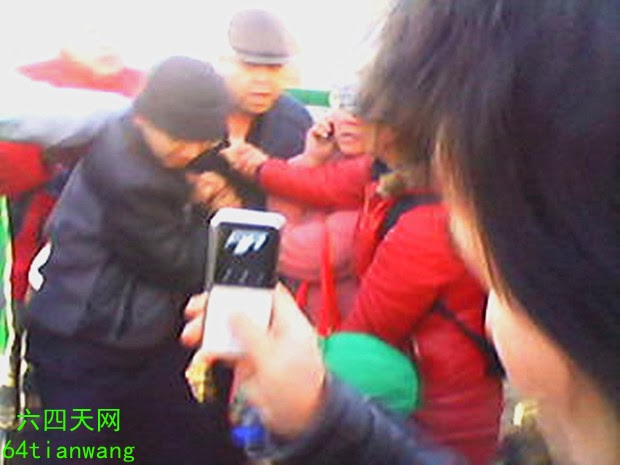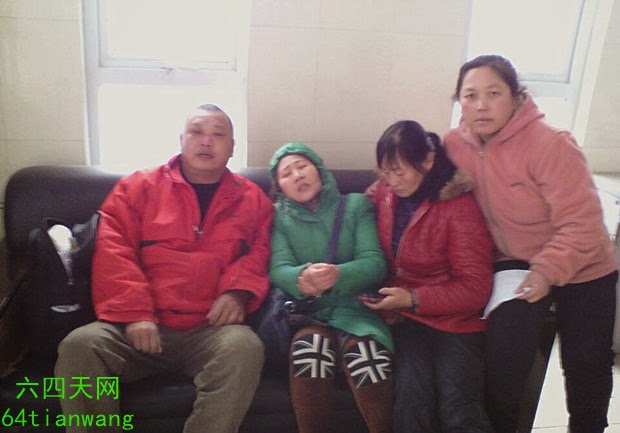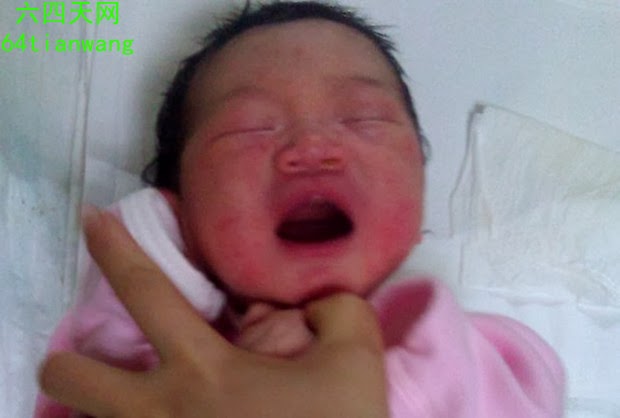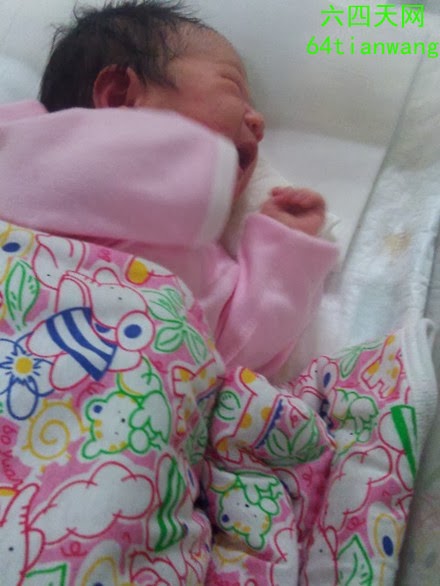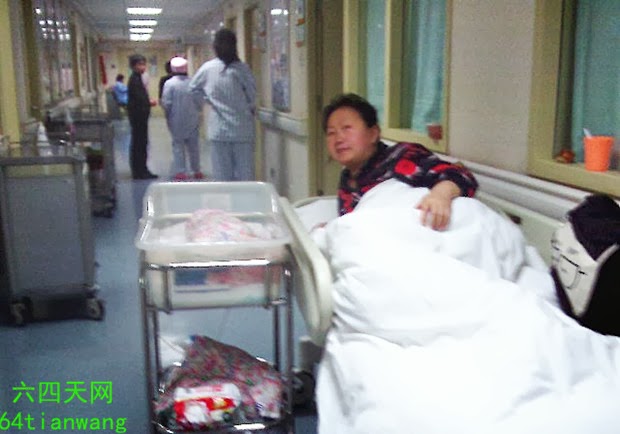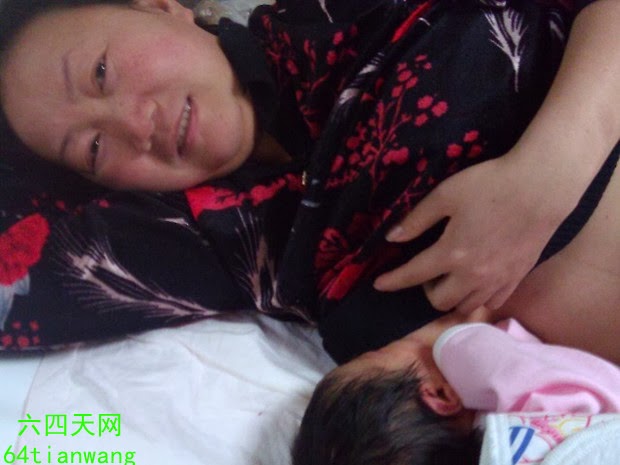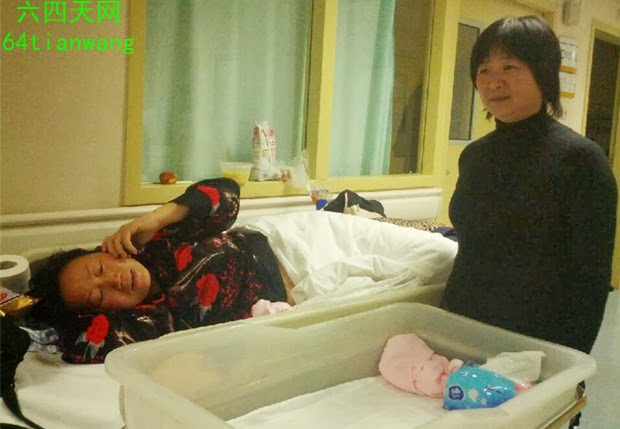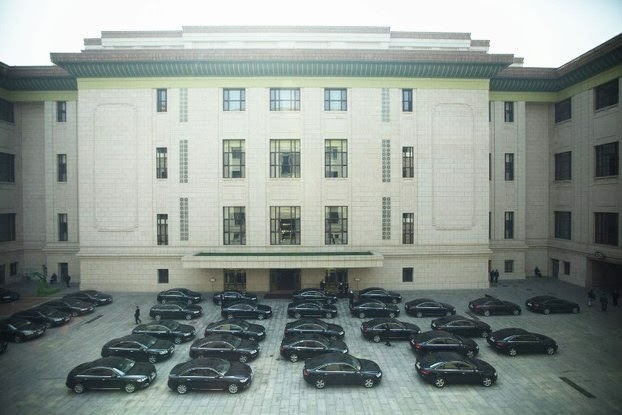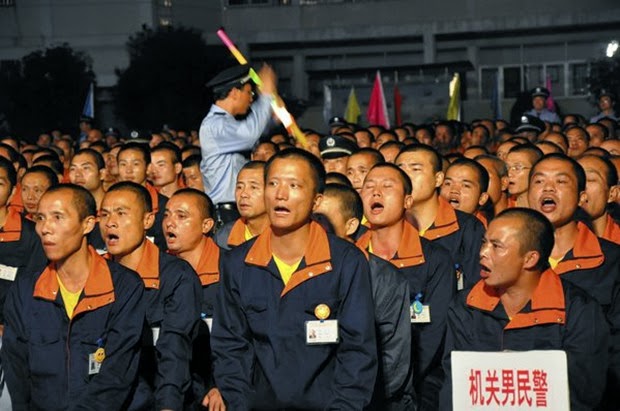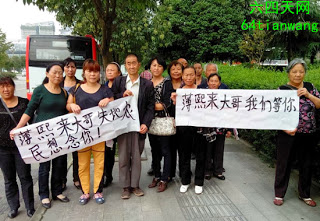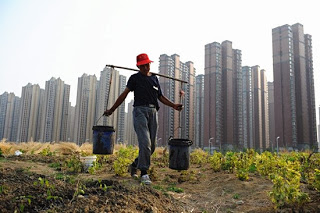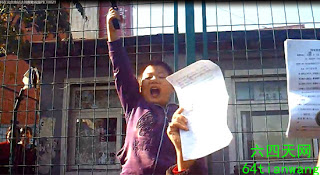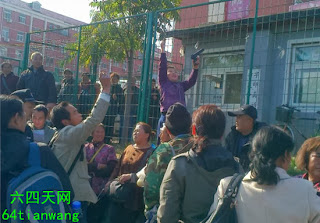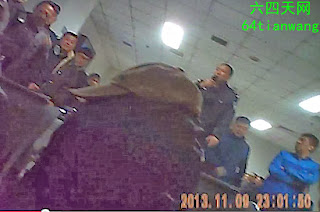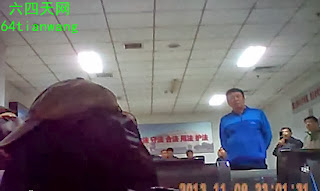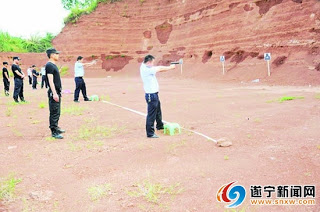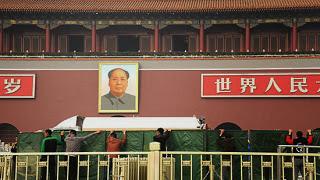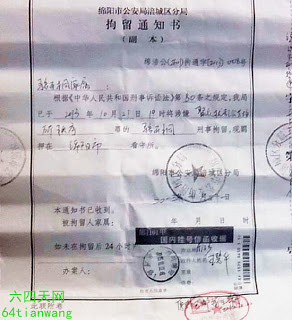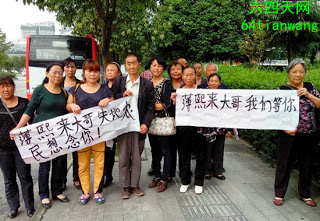[ 时间:2014-02-08 01:15:05 | 作者:Yang Fan, Lin Jing | 来源:FRA ]
2014-02-03Petitioners try to prevent authorities from detaining Sun Chunxiu in Beijing, Feb. 3, 2014.Photo courtesy of 64Tianwang
Dozens of petitioners clashed with officials and security personnel at the Majialou unofficial detention center on the outskirts of Beijing on Monday in a bid to stop a woman from being detained by "interceptors" from her hometown.
The clashes came after a group of some two dozen petitioners were released from the Majialou "reception center," where the authorities lock up those who travel to the Chinese capital to complain about their local government.
Most of those released after a large-scale round-up of petitioners over Chinese New Year last week were from Beijing, but petitioner Sun Chunxiu, from the central Chinese city of Wuhan, had left with them in a bid to avoid "interceptors" from her home city.
"I left [the detention center] and was heading towards the bus stop, but before I had got there they came chasing me in two minibuses," Sun said.
"Lots of people got out, real thugs, and started dragging me away."
She said her fellow petitioners had stopped them, however, and one was badly hurt in the process.
"This woman said 'what do you want to drag her away for?', and one of the guys grabbed her arm and twisted it, and the woman fell on the floor with a really terrible expression on her face, showing real pain," Sun said.
Sun said she had good reason to avoid the "interceptors" from Wuhan, police and officials charged with forcing petitioners back home under escort from detention centers like Majialou, often to face beatings, further detention in "black jails," or official harassment at home.
"The last time they forced me to return home, the head of the complaints office beat me and pulled my hair, and made me kneel down and shouted insults at me," Sun told RFA's Mandarin Service after the clashes, which left one woman with a broken wrist.
"So when they came to drag me away this time, I wouldn't go with them," she said.
Detention in centers like Majialou—officially known as 'reception centers'—follows no procedure under China's current judicial system, and is an interim measure used by the authorities to briefly incarcerate those who complain before sending them home under escort.
From left: Zhang Guozhong, Han Yuhong, Sun Chunxiu, Zhao Yahui. Credit: 64Tianwang
Run away
Sun said the officials had run away after they saw the woman was injured.
The Sichuan-based Tianwang rights website identified the injured woman as Han Yuhong.
Her husband answered her cell phone shortly after the incident.
"Her wrist was broken; a major bone is broken, a compound fracture," he said. "This was done by the interceptors, who acted like criminal gang members, about 20 or 30 of them."
Meanwhile, Han told RFA's Cantonese Service that she had been trying to "reason with" the men who came to take Sun away.
"I was trying to talk to them, and asked them one thing, why they wanted to take her away," Han said.
"Then one of them grabbed and twisted my arm, and held on, until he broke it," she said. "The bone was broken."
Heilongjiang petitioner Zhao Yahui, who also weighed into the clashes to help save Sun, said she had suffered lighter injuries, also to her arm and wrist.
"There were more than 20 of them," Zhao said, adding that many petitioners are growing increasingly angry over official brutality in connection with their complaints and lawsuits.
"They do whatever they want; they can lock us up or beat us up whenever they want," she said. "They don't want us to sue them so they detain us and bring us back; that's the way it goes."
She said petitioners are becoming increasingly aware of their rights under Chinese law, however.
"Those of us who complain about the government have a really cruel time of it, so when they tried to drag her away, we demanded our human rights," Zhao said.
"We may be the lowest of the low in society, but we still demand our human rights," she said. "We will only go with them if we agree to it; what right have they to force us if we don't agree?"
Protest over treatment
Monday's clashes came just days after several hundred inmates broke out of the Majialou compound last Friday in protest at their treatment over Chinese New Year.
Several hundred petitioners stood outside the Majialou detention center and sang "The Internationale" after the breakout, saying they could no longer tolerate being kept in such a crowded place with no water to drink and not enough food to eat, participants and eyewitnesses said.
But many petitioners converge on major centers of government during high-level political meetings and significant dates in the calendar, in the hope of focusing public attention on their plight.
Nearly 20,000 grievances are filed daily to complaints offices across China in person, according to official figures released last November.
China has pledged to revamp its system for lodging complaints against the government as part of a package of reforms announced recently, but rights activists say the changes aren't likely to lead to more justice for petitioners.
Many petitioners are middle-aged or elderly people with little or no income living in constant fear of being detained by officials from their hometown who run representative offices in larger cities seeking out those who complain about them.
Those who do pursue complaints against the government--often for forced evictions, loss of farmland, accidents, or death and mistreatment in custody--say they are repeatedly stonewalled, detained in "black jails," beaten, and harassed by the authorities.
Reported by Yang Fan for RFA's Mandarin Service, and by Lin Jing for the Cantonese Service. Translated and written in English by Luisetta Mudie.


